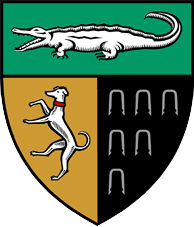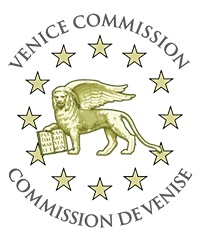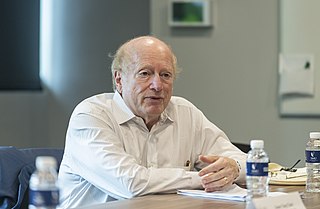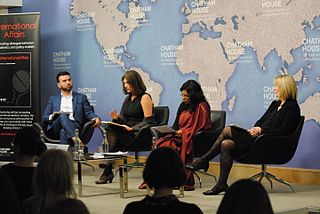Related Research Articles

The University of Chicago Law School is the law school of the University of Chicago, a private research university in Chicago, Illinois. It is consistently ranked among the best and most prestigious law schools in the world, and has many distinguished alumni in the judiciary, academia, government, politics and business. It employs more than 180 full-time and part-time faculty and hosts more than 600 students in its Juris Doctor program, while also offering the Master of Laws, Master of Studies in Law and Doctor of Juridical Science degrees in law. The law school has the highest percentage of recent graduates clerking for federal judges.

Yale Law School is the law school of Yale University, a private Ivy League research university in New Haven, Connecticut. It was established in 1824 and has been ranked as the best law school in the United States by U.S. News & World Report every year between 1990 and 2022, when Yale made a decision to voluntarily pull out of the rankings, citing issues they have with the methodology used in the rankings. One of the most selective academic institutions in the world, the 2020-21 acceptance rate was 4%, the lowest of any law school in the United States. Its yield rate of 87% is also consistently the highest of any law school in the United States.

The University of Virginia School of Law is the law school of the University of Virginia, a public research university in Charlottesville, Virginia. It was founded in 1819 by Thomas Jefferson as part of his "academical village" which became University of Virginia where law was one of the original disciplines taught. UVA Law is the fourth-oldest active law school in the United States and the second-oldest continuously operating law school. The law school offers the J.D., LL.M., and S.J.D. degrees in law and hosts visiting scholars, visiting researchers and a number of legal research centers.

The Venice Commission, officially European Commission for Democracy through Law, is an advisory body of the Council of Europe, composed of independent experts in the field of constitutional law. It was created in 1990 after the fall of the Berlin Wall, at a time of urgent need for constitutional assistance in Central and Eastern Europe.

Mark Victor Tushnet specializes in constitutional law and theory, including comparative constitutional law, and is currently the William Nelson Cromwell Professor of Law at Harvard Law School. Tushnet is identified with the critical legal studies movement.

Fionnuala Ní Aoláin is an Irish academic lawyer specialising in human rights law.

David D. Cole is the National Legal Director of the American Civil Liberties Union (ACLU). Before joining the ACLU in July 2016, Cole was the Hon. George J. Mitchell Professor in Law and Public Policy at the Georgetown University Law Center from March 2014 through December 2016. He has published in various legal fields including constitutional law, national security, criminal justice, civil rights, and law and literature. Cole has litigated several significant First Amendment cases in the Supreme Court of the United States, as well a number of influential cases concerning civil rights and national security. He is also a legal correspondent to several mainstream media outlets and publications.

Thio Li-ann is a Singaporean law professor at the National University of Singapore. She was educated at the University of Oxford, Harvard Law School and the University of Cambridge. In January 2007, she was appointed a Nominated Member of Parliament (NMP) in Singapore's 11th Parliament.

Sarah Hull Cleveland is an American law professor and noted expert in international law and the constitutional law of U.S. foreign relations, with particular interests in the status of international law in U.S. domestic law, international and comparative human rights law, international humanitarian law, and national security. She is the current nominee to be the Legal Adviser of the Department of State in the Biden administration. She will be nominated to be a judge on the International Court of Justice.

Amos N. Guiora is an Israeli-American professor of law at S. J. Quinney College of Law, University of Utah, specializing in institutional complicity, enabling culture, and sexual assaults. Guiora’s scholarship explores institutional complicity in relation to the victimization of young people by college sports coaches, trainers, doctors, and Catholic priests. As a result of this work, Guiora has become not just an academic but also an advocate for sexual assault victims.

Boštjan M. Zupančič is a former Judge at the European Court of Human Rights in Strasbourg, France (1998–2016) and also the President of the Third Chamber at this Court from November 2004 to January 2008.

Iulia Antoanella Motoc is a Romanian judge and international law expert, currently a Judge at the European Court of Human Rights and a professor at the University of Bucharest. Before beginning her service at the Court, she served as a Judge at the Constitutional Court of Romania. Motoc was UN Special Rapporteur for the Democratic Republic of the Congo and she chaired a number of international experts bodies and was Vice-President of the UN Human Rights Committee. On 1 October 2013, the Parliamentary Assembly of the Council of Europe elected Motoc a Judge of the European Court of Human Rights with respect to Romania. She received an absolute majority of votes cast by parliamentarians. Her nine-year term of office began on December 18, 2013. In August 2021, she was elected as a member of the Institut de Droit International
Satvinder Singh Juss FRSA, is a British academic and professor. He is professor of law at King's College London and a barrister-at-law in Gray's Inn. He has published widely on the subjects of migration and international human rights law.

Frances Raday is a Professor Emerita of Elias Lieberman Chair in Labor Law, Hebrew University of Jerusalem. Raday is currently a Professor of Law at the Haim Striks Law School at Colman College of Management Academic Studies, where she also acts as President of the Concord Center for Integration of International Law in Israel and as Head of the School's Graduate Programs.

Daniel Thürer is a Swiss jurist and professor emeritus of international, comparative constitutional and European law at the University of Zurich. He is a member of the International Committee of the Red Cross, and of the Institut de Droit International, and presides the German International Law Association. Currently, he is a Fernand Braudel Senior Fellow at the European University Institute in Florence.
Siegfried Wiessner is a Professor of Law and the Founder and Director of St. Thomas University's Graduate Program in Intercultural Human Rights in Miami, Florida. He holds a law degree (1977) as well as a Dr. iur. (1989) from the University of Tübingen, Germany, and an LL.M. from the Yale Law School (1982). In 1986, he was elected member of the International Institute of Space Law. He is the Editor-in-Chief of Martinus Nijhoff's Studies in Intercultural Human Rights. From 1997 to 2000, he was a lecturer at the UN/UNITAR International Law Fellowship Program. In October 2009 and November 2010, he served as Visiting Professor of Law at the City University of Hong Kong. In fall 2009, he was a Fernand Braudel Senior Fellow at the European University Institute in Florence, Italy. From 2007 to 2010, he was a member of the Executive Council of The American Society of International Law. From 2008 to 2012, he served as the Chair of the International Law Association's Committee on the Rights of Indigenous Peoples.

Iqra Khalid is a Pakistani Asian-Canadian politician who was elected to represent the riding of Mississauga—Erin Mills in the House of Commons of Canada in the 2015 federal election.
Joseph Marko is an Austrian legal scholar and political scientist.
Helen Irving is Professor Emerita at Sydney Law School, University of Sydney, Australia. Irving's research is in constitutional law, employing an historical perspective of the political and social context of Australian constitutional law and citizenship. Research interests include: Australian and comparative constitutional law, gender and constitutionalism, constitutional history and theory, constitutional citizenship.
References
- ↑ Gerald L. Neuman (February 12, 2007). "The Military Commissions Act and the Detainee Debacle: A Response". Harvard International Law Journal . Retrieved 2008-02-10.
- ↑ Gerald L. Neuman. "Harvard Law School: Gerald L. Neuman". Harvard Law School . Retrieved 2008-02-10.
- ↑ Gerald L. Neuman (May 2003). "Human rights and constitutional rights: harmony and dissonance. (Symposium on Treaties, Enforcement, and U.S. Sovereignty)". Stanford Law Review . Retrieved 2008-02-10.[ dead link ]
- ↑ Gerald L. Neuman (December 2002). "Real Security Concerns: A response to David Cole's "Their Liberties, Our Security"". Boston Review. Archived from the original on 2008-05-11. Retrieved 2008-02-10.
- ↑ Gerald L. Neuman. "Strangers to the Constitution". Ebooks. Archived from the original on 2010-02-06. Retrieved 2008-02-10.
- ↑ Gerald L. Neuman (1998). "Immigration and Judicial Review in the Federal Republic of Germany". Vol. 35, no. 23. Journal of International Law and Politics. Archived from the original on 2008-06-20. Retrieved 2008-02-10.
- ↑ "Neuman elected to the Human Rights Committee" . Retrieved 2012-02-07.
- ↑ Gerald L. Neuman, JD, PhD Biography